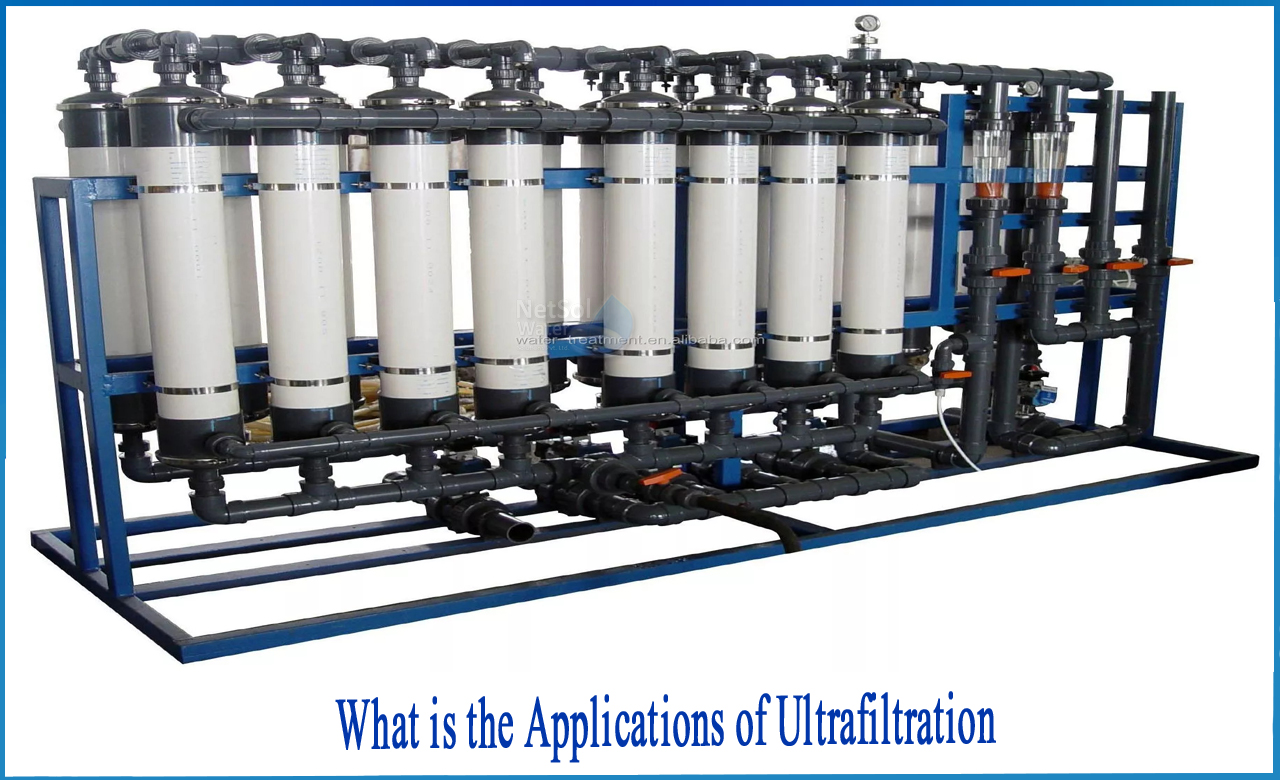What is Ultrafiltration?
It is a membrane filtering technology that is based on pressure for concentration, fractionation, and purification of macromolecules, in solutions without phase shift or the addition of chemicals and solvents.
When combined substances of different particle sizes flow across a semi-permeable membrane at the molecular level, membrane separation technology is used to produce mechanical separation.
Principle of Ultrafiltration
On a molecular level, the principle of sieving high flux rates can be achieved with low applied pressures.Solutes are separated from a solvent by applying pressure on a semipermeable membrane. The Darcy equation describes the relationship between the applied pressure on the solution to be separated and the flux through the membrane.
What is the Applications of Ultrafiltration?
Ultrafiltration is used in industries such as chemical and pharmaceutical manufacturing, food and beverage processing, and wastewater treatment to recycle flow or add value to later products.
It has become one of the most important approaches in separation science today, with applications in food, medicine, biology, environmental protection, and chemical engineering. It is also utilized in metallurgy, energy, petroleum, water treatment, electronics, bionics, and other sectors.
In the fermented pharmaceutical sector, a combined membrane method is used.
1: Ultrafiltration: Direct ultrafiltration of the fermentation broth to achieve solid-liquid separation has become more frequent when using membrane separation technology to treat biological fermentation broth. This technique is for removing macromolecular contaminants such as hyphae, proteins, viruses, and pyrogens. The ultrafiltration membrane passes practically all molecular metabolites, including target products, salts, and water.
2: Nanofiltration: Because the concentration is low in fermented medicines, dehydration and concentration of the product is a crucial extraction procedure. Multi-effect evaporators are commonly used in production today, which requires a large investment and high energy consumption; at the same time, product loss occurs due to the phase change process of evaporation, and the colour of the product deepens; for some products with high residual sugar content, caramelization may still cause clogging and scaling.
In the dehydration concentration process of fermentation production, the use of one- or multi-stage nanofiltration and reverse osmosis technologies with no phase change and low energy consumption can greatly reduce the solvent and energy consumption in the subsequent process, while also improving yield and product quality.
Fermentation broth characteristics
In the pharmaceutical sector, biological fermentation with grain as the principal raw material is used to make antibiotics, vitamins, and amino acids. The concentration of the target product in the fermentation broth is very low, typically accounting for only 0.1 percent to 5% of the total volume of the fermentation broth, and it contains a lot of other impurities like mycelium, protein, residual soluble substrates, intermediate metabolites, substances added during the pretreatment of the fermentation broth, and so on; and some have poor heat resistance, pH resistance, and organic solvent resistance, among other things. As a result, a substantial quantity of contaminants must be removed from the fermentation broth in order to produce a high-purity product that meets pharmacopoeia requirements.
Conclusion
Select a membrane separation procedure that can replace traditional separation and concentration processes such vacuum hub filtration, plate and frame filtration, centrifugal separation, flocculation, ion exchange, solvent extraction, and evaporation. Membrane separation technique such as RO, UF and NF has emerged as a crucial tool for separating fermenting medicinal and industrial products.
Don't hesitate to seek assistance!
Call Netsol Water if you want the best water treatment system for your home or business. Our services include the greatest water and wastewater treatment, as well as a variety of useful after-sales services. Our professionals will check the customer's location first, then explain the available options and thus allow you to select what is best for your property. You can always find useful information by liking and following us on YouTube and LinkedIn.
For further inquiries or product-purchase-related questions, give us a call at +91-9650608473 or email at enquiry@netsolwater.com.



